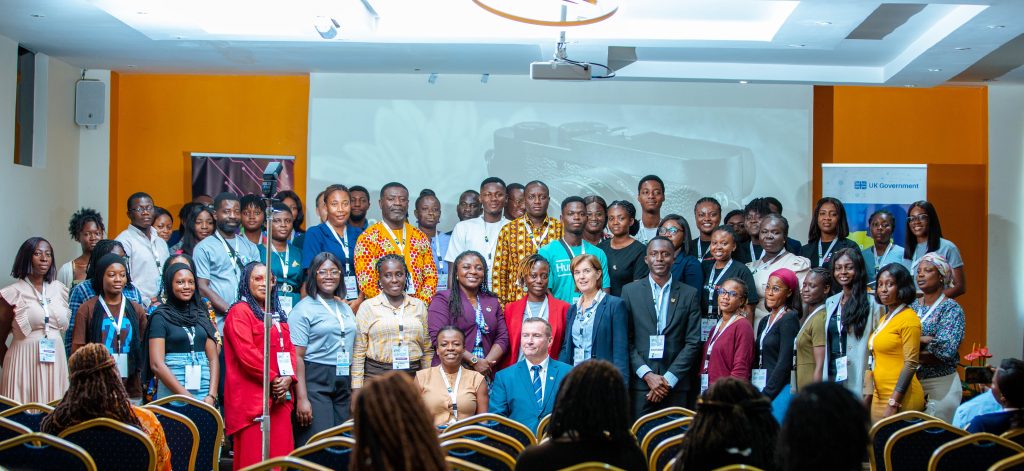By Eric Appah Marfo/ Sandra Lartey
Accra, Oct. 31, GNA – Dr. Albert Antwi-Boasiako, Director-General of the Cyber Security Authority (CSA), has called for stakeholders in cyberspace to empower women to lead efforts in defending the digital landscape.
In a speech read for him at the opening of a two-day Social Media Fact-Checking and Cyber Resilience workshop in Accra, he emphasized that women’s unique perspectives and experiences were vital for creating comprehensive security strategies.
The event was organized by the Women in Cybersecurity (WiCyS) West Africa Affiliate, in collaboration with the CSA and supported by TAG International through the UK Government’s FCDO Africa Cyber Programme.
The workshop was part of the CSA’s Cybersecurity Awareness Month 2024. It was on the theme “Combating Misinformation and Disinformation in a Digitally Resilient Democracy – Our Collective Responsibility.”
It brought together cyber experts, journalists, civil society organizations, non-governmental organizations, and small and medium-sized enterprises to enhance critical skills in identifying misinformation and strengthening cyber resilience.
Dr. Antwi-Boasiako said that women had historically led innovation and change, including in cybersecurity, yet the field still suffered from a significant gender gap, with women comprising only 24 per cent of the workforce, according to the 2022 Cybersecurity Workforce Study.
He noted that that disparity limited opportunities for women and undermined the collective ability to address cyber threats.
Referencing research by McKinsey & Company, Dr. Antwi-Boasiako noted that companies with more women in decision-making roles were 21 p[er cent more likely to outperform their male counterparts in profitability.
He called for proactive measures to tackle the evolving challenges in the cybersecurity landscape, stressing the need for a more inclusive approach.
“In this environment, it is not enough to react to threats; we must be proactive. We need robust strategies and a culture of security that permeates every organisation. This is where you(us), the women in cybersecurity, play an essential role,” he said.
Dr. Antwi-Boasiako emphasized that education and awareness were crucial for fostering a security-oriented culture where every employee understood their role in protecting information.
He advocated for training programmes that empower individuals to identify potential threats and respond effectively, calling for collaboration among stakeholders to enhance cybersecurity.
Dr. Antwi-Boasiako encouraged women to pursue careers in cybersecurity, seek mentorship, embrace continuous learning, and challenge existing norms to bridge the gender gap in the field.

Mrs. Olayinka Naa Dzama Wilson-Kofi, President of WiCyS West Africa Affiliate, expressed gratitude to partners for their support of the event.
She said that the theme highlighted the importance of stakeholders, especially women and cybersecurity professionals, in promoting accuracy and security in the digital realm to ensure resilience both personally and professionally.
Mrs. Wilson-Kofi noted that the digital landscape presented continuous opportunities and challenges, with misinformation spreading rapidly on social media, impacting public perception and national stability.
She urged citizens to engage in accurate fact-checking to uphold integrity, encourage informed decisions, and protect communities from potential harm.
Mrs. Wilson-Kofi asked stakeholders and citizens to also develop cyber resilience to be able to anticipate, respond to and recover from cyber incidents effectively.
“Cyber resilience transcends simple defense; it ensures that our systems, organizations, and individuals can thrive and adapt even when faced with cyber threats.
“Our shared commitment to fact-checking and cyber resilience not only empowers us as individuals but also strengthens our organisations, communities and society as a whole,” she added.
Mr. Tim Galvin, Assistant Director of the African Cyber Programme at the British High Commission, commended Ghana’s cybersecurity efforts, and highlighted the country’s global recognition in that area.
He noted that cyber threats in Africa had become increasingly intense, complex, and severe, underscoring the need for deeper collaboration among nations.
Mr. Galvin stated that beyond signing treaties, countries must actively demonstrate their commitment through cooperation and intelligence sharing to effectively combat those threats.
Mrs. Audrey Mireku, Vice President of WiCyS West Africa, encouraged the youth to use the internet safely, ethically, and responsibly to avoid trouble.
She emphasized the importance of equipping citizens with knowledge about misinformation to prevent the sharing of inaccurate information.
“Let us not be carried away when we’re on social media. The internet never forgets so anything we do or so today can come back to haunt us later in life,” she said.
GNA